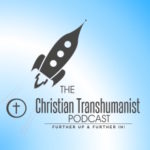We run our website the way we wished the whole internet worked: we provide high quality original content with no ads. We are funded solely by your direct support. Please consider supporting this project.

Christians & Politics: Where Do You Stand?
In the 1980’s, Cal Thomas and Ed Dobson were leaders in the Moral Majority, a conservative evangelical social and political movement that attempted to rally “moral” people to change public policy. The movement died out in the 1990s. In 1999, Thomas and Dobson wrote a book entitled Blinded by Might in which they declare that they shifted their convictions and argued that Christians should not try to change culture primarily by influencing the political system. They should rather rely on the power of the gospel to change lives, one at a time. Christianity becomes corrupted, they argued, when it becomes overly involved in the politics of the world.
The perspectives of Thomas and Dobson illustrate how Christians throughout history have embraced a number of perspectives on this issue. The common approaches can be broken down into three groups.
First, some Christians believe that one of the jobs of the church is to transform and ultimately control politics. This view has often been labeled the transformational model and has been the dominant view among Calvinists. It was also popular with most nineteenth-century revivalists, like Finney and Moody, and the church throughout the Middle Ages. Since God is Lord of everything, Christians should seek to manifest this lordship in everything, including politics. They should therefore use any righteous means possible to sanctify the political system and seek to pass laws that reflect God’s will for people as revealed in Scripture.
Second, some operate according to the two two-kingdoms model of church and state. This has been the primary view of Lutherans and arguably the dominant view among American Christians. This model holds that “secular” politics are under God’s authority. However, unlike the transformational model above, it does not hold that the politics of the world should be or can be transformed into a Christian system. Rather, secular government and the church are two ways that God works in the world, and they accomplish different purposes. The purpose of secular government is to keep sin in check and rule over sinners by force. The purpose of the church is to transform sinners into saints who do not need to be ruled by law. Christians may or may not get involved in government, depending on their calling from God. But they should not think that any alterations they make in government, however laudable, will further the purpose of transforming lives the way God wants to transform them.
The final perspective is embraced by those who believe that Christians should not involve themselves at all in secular politics or at least should be wary of doing so. This is an oppositional model that has been the traditional view among Anabaptists. Christ said his kingdom is not of this world, and he never involved himself in the political debates of his day (John 18:36). Christians are called to be loyal to Christ’s kingdom alone and to see themselves as citizens and ambassadors of the kingdom of God while living in a “foreign” land (Phil 3:20). The present world, including its political systems, is under the control of Satan. Therefore, trying to conform it to God’s will is futile and even dangerous. The power of the gospel is found in offering an alternative way of living, not in influencing the political process.
Which option do you embrace?
—Adapted from Across the Spectrum, pages, 304-305
Photo credit: derekbruff via Visual Hunt / CC BY-NC
Category: General
Tags: Christian Living, National Idolatry, Politics, Power
Related Reading

Podcast: How Should Pacifists View Military Veterans?
Greg dons camouflage in this boots to the ground episode. http://traffic.libsyn.com/askgregboyd/Episode_0295.mp3

Does Romans 13 Condone Government Violence? (podcast)
Greg deconstructs problematic interpretations of Romans 13. Episode 649 http://traffic.libsyn.com/askgregboyd/Episode_0649.mp3

Greg’s Interview on The Christian Transhumanist Podcast
Here is an interview I did for The Christian Transhumanist Podcast that I wanted to share with all of you. Micah Redding and I discuss everything from Relativity Theory to Politics. I think you’ll find it interesting, but I want to offer a word of clarification before you listen. At one point in this interview…

A Kingdom Not of This World
Bruxy Cavey spoke at Woodland Hills Church back in May as a part of the Tapestry series, and this is a little snippet of his sermon. It’s a wonderful description of the Anabaptist approach to politics. Take a look!

Election Benediction
On this election day, when so many Americans are experiencing high levels of anxiety, I thought it would be good to share an “Election Benediction” that was written and sent to me by Kenneth Tanner. Let it ground you in the love, peace and security of Christ and his Kingdom. An Election Benediction By Kenneth…

Praying for Peace During Political Hostility
Jesus calls his disciples to be “peacemakers” (Mt 5:9). During this season of political animosity, we have a great opportunity to practice being disciples by offering an alternative way of interacting with each other. One primary way we do this is by using the unique authority we have to affect the world through prayer to…
